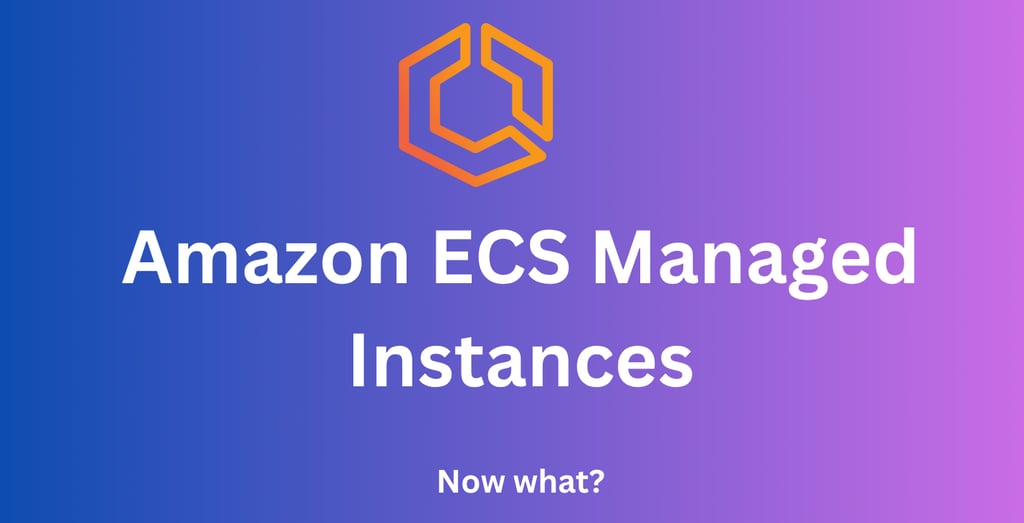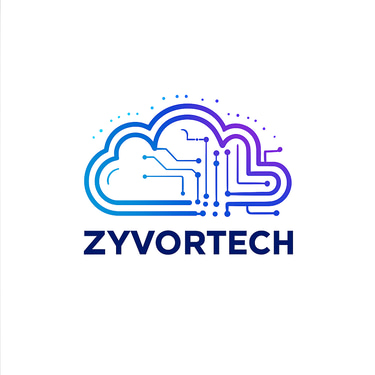Amazon ECS Managed Instances: Faster ML Inference & Lower Ops for Containerized Workloads
Amazon ECS Managed Instances combine EC2 flexibility (including GPUs) with AWS-managed provisioning, patching and auto-scaling — ideal for ML inference and heavy ETL. Learn use cases and how Zyvortech helps.
10/15/20252 min read


Amazon ECS Managed Instances: run EC2-class containers without the ops burden
Amazon ECS Managed Instances offers a fully managed compute option that brings EC2 flexibility (choose instance types including GPU, use reserved capacity) while AWS handles provisioning, patching (Bottlerocket), scaling, placement and lifecycle maintenance — letting teams focus on apps and models, not instance maintenance.
Why this matters for cloud teams and MLOps
Run GPUs in production faster — Managed Instances support GPU instance types and automated scaling, shortening the path to low-latency model serving.
Reduce operational cost and friction — ECS optimizes instance placement to consolidate workloads and reduce idle capacity; AWS manages patching and maintenance windows.
Maintain control when you need it — default mode chooses cost-optimized instances automatically, but you can filter by instance attributes or pin specific instance types for special workloads.
Top enterprise benefits
Faster ML deployment — automated GPU selection and scaling for inference and model serving.
Lower ops burden — Bottlerocket + scheduled maintenance windows and automated patching reduce manual upgrades.
Cost & capacity control — use reserved capacity, instance attribute filters, and ECS placement to balance performance vs cost.
Where ECS Managed Instances shine — practical use cases
MLOps / Model inference: low-latency model serving with automatic GPU scaling and managed instance lifecycle.
Large-scale data processing: containerized ETL and stream processing with managed capacity and native integrations (S3, Kinesis, Redshift).
Internal developer platforms & cloud migrations: speed lift-and-shift or modernize legacy apps while preserving EC2 capabilities and instance attributes.
When to use ECS Managed Instances vs alternatives
Use ECS Managed Instances when you need EC2 features (GPUs, specific CPU arch, network perf) but want AWS to manage provisioning, patching and placement.
Use Fargate for serverless container operations where you don’t need EC2 controls.
Use self-managed EC2 when you require full control, custom OS images, or specialized hardware not supported by the managed option.
How Zyvortech helps
Evaluate & choose — cost/performance analysis: ECS Managed Instances vs Fargate vs self-managed EC2 (including FinOps and compliance tradeoffs).
Prototype & validate — POC for ML inference pipelines: GPU sizing, autoscaling rules, expected latency and cost projections.
Production rollouts — IaC (CDK/CloudFormation), Bottlerocket hardening, maintenance window policies, observability with CloudWatch & X-Ray.
FinOps & governance — reserved capacity planning, automated cost-optimization runbooks, and audit controls for enterprise environments.
If your team runs ML inference, heavy ETL, or needs predictable EC2 controls with managed operations, Zyvortech can deliver a short assessment + POC showing cost, performance, and operational improvements. Contact us to schedule a workshop.
